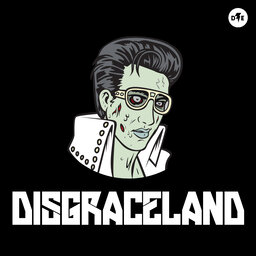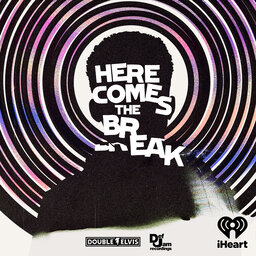In this special look behind the scenes of Here Comes the Break, Asante Blackk interviews Gael Aitor of Teenager Therapy and the actors who played Ruben’s parents discuss the making of the show. This is the first of two special behind-the-scenes bonus episodes.
Executive Producer: Asante Blackk
Producer: Daniella Perkins
Starring: Asante Blackk and Daniella Perkins
Co-Starring: Bobby Cius, Rayme Cornell, Christopher V. Edwards and Taylor Bettinson
Written by: Taylor Bettinson and Nakia Hill
Directed By: Christopher V. Edwards
https://instagram.com/oompoutloud
https://www.instagram.com/herecomesthebreak/
https://www.instagram.com/doubleelvis/
https://twitter.com/doubleelvisfm
https://www.facebook.com/DoubleElvisProductions/
Learn more about your ad-choices at https://www.iheartpodcastnetwork.com
In 1 playlist(s)
Here Comes the Break
Here Comes the Break is a groundbreaking podcast sparking real conversations about creativity, menta…Social links
Follow podcast
Recent clips

Presenting Disgraceland Season 11 Trailer
02:20

Jake Brennan Talks Here Comes the Break and Soundtrack Release
08:04

Bonus #2: Acting / Writing / Interviews
39:32
 Here Comes the Break
Here Comes the Break